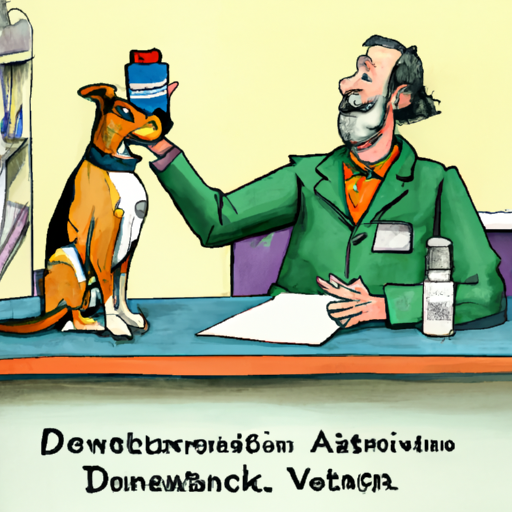As a dedicated dog caregiver, you’re always on the lookout for information that can help ensure your canine companion is living their best life. You may have heard of dexamethasone, a type of medication that’s often recommended by veterinarians for a range of health issues. But what exactly is this drug, and what purposes does it serve in our four-legged friends? Let’s dive in and explore.
- Table of Contents
- Understanding Dexamethasone
- Applications of Dexamethasone in Dogs
- Side Effects and Precautions
- Dexamethasone vs. Other Steroids
-
Frequently Asked Questions
-
Key Takeaways
- Dexamethasone is a potent steroid medication commonly used in dogs.
- It can treat a variety of conditions, including allergies, arthritis, and certain auto-immune diseases.
- While generally safe when used under veterinary supervision, it can cause side effects.
Understanding Dexamethasone
Dexamethasone is a type of corticosteroid, a class of drugs that replicate the effects of naturally occurring steroid hormones in the body. It’s highly potent, with its anti-inflammatory effects being approximately 20 to 30 times stronger than those of naturally produced cortisol. This powerful medication is also used in humans and can be found in various forms such as tablets, injectable solutions, and topical creams or ointments [^1^].
In the context of canine health, dexamethasone serves as a powerful anti-inflammatory and immune suppressant, making it a go-to choice for treating a variety of conditions. You might find this article from OneTopDog particularly helpful in understanding more about canine health in general.
Applications of Dexamethasone in Dogs
Dexamethasone is a versatile medication with numerous applications in the treatment of canine health issues. Here are some common uses:
- Allergies: Dexamethasone can be used to manage severe allergic reactions, such as skin allergies or food allergies.
- Arthritis: As a potent anti-inflammatory, it can help control symptoms of arthritis, reducing pain and swelling.
- Auto-immune diseases: It’s often used to manage autoimmune conditions like immune-mediated hemolytic anemia (IMHA).
- Shock: In severe cases, dexamethasone can be used to treat shock, aiding in the stabilization of blood pressure.
- Cancer: In some cases, it can be used as a part of the therapeutic protocol for certain types of cancer.
For a deeper understanding of these conditions, check out OneTopDog’s articles on canine arthritis and dog allergies.
Side Effects and Precautions
While dexamethasone is generally safe when used under veterinary supervision, it can cause side effects. Common side effects include increased thirst and urination, panting, restlessness, and changes in appetite. Long-term use can lead to more serious side effects like immunosuppression, gastrointestinal ulcers, and hormone imbalances.
Given these potential side effects, it’s crucial to follow your vet’s instructions closely when administering dexamethasone. If your dog has a pre-existing condition like diabetes or heart disease, be sure to discuss this with your vet, as dexamethasone can exacerbate these conditions.
Dexamethasone vs. Other Steroids
Compared to other corticosteroids like prednisone or prednisolone, dexamethasone is significantly more potent. This potency makes it an effective choice for severe or refractory conditions, but it also increases the risk of side effects. Therefore, it’s typically used only when other, less potent steroids have proven ineffective.
Frequently Asked Questions
Q: Can dexamethasone be used long term in dogs?
A: Long-term use of dexamethasone can lead to serious side effects and is generally avoided when possible.
Q: Does dexamethasone make dogs sleepy?
A: Dexamethasone does not typically cause drowsiness. However, if you notice any changes in your dog’s behavior, contact your vet.
Q: Can I buy dexamethasone for my dog without a prescription?
A: No, dexamethasone is a prescription medication and should only be used under the guidance of a vet.
In closing, dexamethasone is a powerful tool in the arsenal of canine health, capable of treating a range of conditions. As with any medication, it’s essential to use it responsibly and under the guidance of a professional. For more information on canine health, consider seeking out reputable resources like the American Kennel Club.



